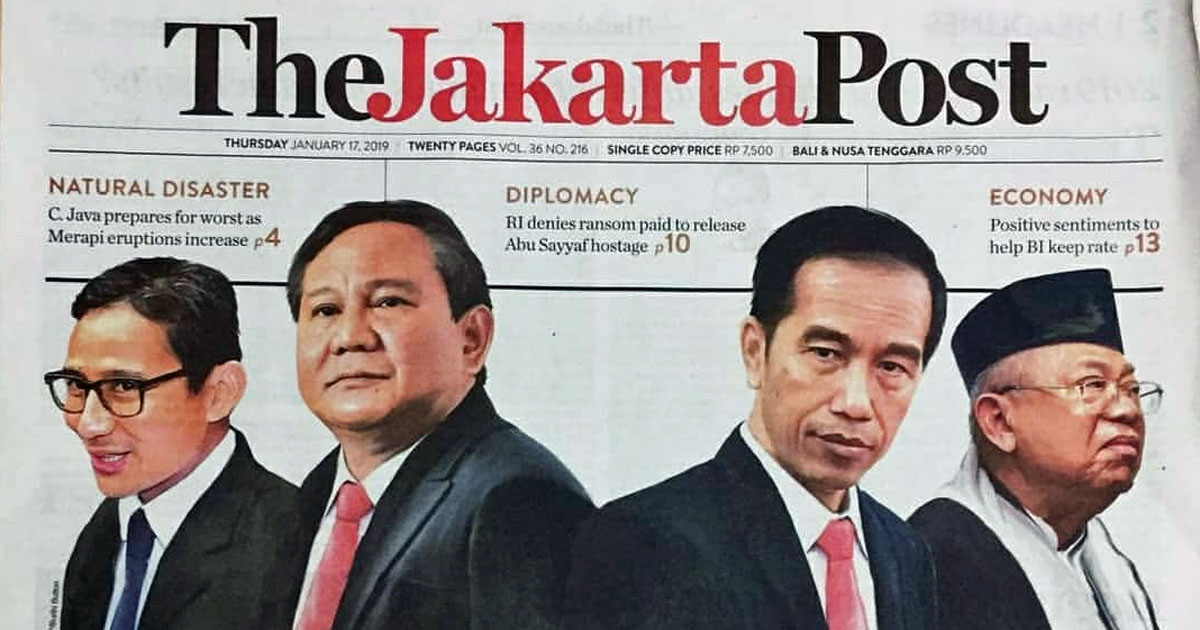Some 193 million voters from Indonesia, a country with the largest Muslim population in the world, will go to the polls on April 17, 2019.
World's biggest direct presidential election
Although voting is not mandatory, the day is designated as a national holiday to encourage high voter turnout.
It is the world's largest direct presidential election -- since the United States uses an electoral college system.
This effectively makes Indonesia one of the largest democratic countries in the world.
One of the world's most complicated elections
Besides choosing their president between the incumbent, Joko Widodo, and former military general Prabowo Subianto, Indonesians will also be choosing officials for four other levels of political office:
- Regional Representatives Council (upper house)
- People's Representative Council, or the House of Representatives (lower house)
- Provincial Legislative Council
- District/ City Legislative Council
Voting takes place in one single day
As a result, the election has been dubbed the "five boxes" election.
There are more than 245,000 candidates running for more than 20,000 national and local legislative seats across hundreds of islands in the country.
While India, the world's largest democracy, votes in rolling elections from April 11 to May 19, Indonesia's election that consists of five separate elections, takes place within a single day.
Mindblowing logistics
Indonesia is the world's third most populous democracy.
Catering to millions of voters in five separate elections is, therefore, a logistical nightmare.
But the election commission (KPU) has managed to keep a consistent track record of providing for fair elections, with both politicians and members of the public accepting the results, according to Lowy Institute, a think-tank based in Sydney.
800,000 polling stations
This is how they do it.
There will be more than 800,000 polling stations.
Each polling station will cater to 200 to 300 voters.
Temporary election workers who number around six million -- more than the population of Singapore -- will be running the polling stations.
Fair elections?
According to the Lowy Institute, dispersing voters across so many polling stations makes it hard for anyone to systematically stuff ballots in the national elections.
Also, although vote-buying is widespread, with a study revealing that up to one-third of Indonesians have received bribes in previous elections in return for their votes, secret ballots mean that there is no certain way to check who voters have chosen.
This means voters can pocket bribes, but end up not voting for who they supposedly sold their vote to. Pretty cool double crossing.
Furthermore, instead of using a pen or pencil, Indonesians vote by punching a hole in the ballot paper with a nail -- incidentally, the Indonesian word for voting literally means "to punch".
 The election mascot holding a nail, with a finger dipped in temporary indelible ink after voting.
The election mascot holding a nail, with a finger dipped in temporary indelible ink after voting.
Votes are counted publicly at each polling station shortly after polls close.
Officers will hold each ballot paper up so observers can see light going through the hole.
This makes the votes less easy to manipulate.
Some problems remain
However, critics have pointed out a series of problems that have damaged the integrity of the election.
According to ABC, the problems include the spread of misinformation and hoaxes, the delay in millions of Indonesians receiving their electronic identity cards that they need in order to vote, as well as bureaucratic errors that resulted in duplicate votes.
Top image via The Jakarta Post
If you like what you read, follow us on Facebook, Instagram, Twitter and Telegram to get the latest updates.
